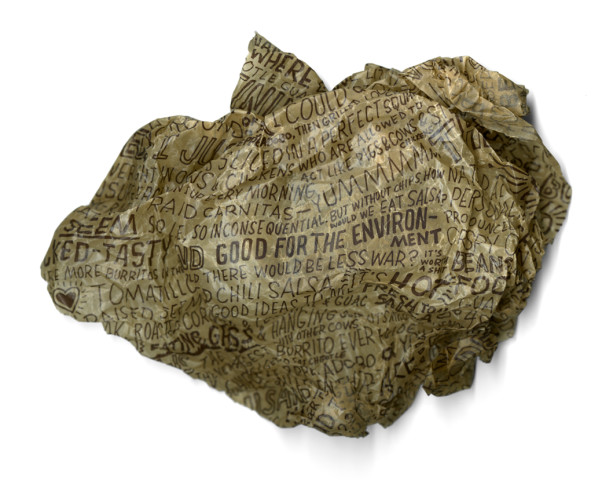When I relocated from The Netherlands to Silicon Valley, I was invited to an “ice-cream social” in a cul de sac of Eichler homes. We got talking about the environment—a popular topic in Northern California—and one professor proudly announced that this was the street with the most Priuses in the country. It was also a street that, despite the constant sunshine, did not boast one clothesline; clothes dryers, along with a vehicular commute to the local supermarket, were, it would seem, the most convenient option. Conspicuous consumption is also convenient; it is much easier to buy coffee in a 60% recycled cardboard cup or pay luxury money for a Prius to rack up some nice middle class enviro-points than it is to make arduous lifestyle adjustments. Lifestyle is what you buy, not what you do.
After this experience, conspicuous environmental consumption and absolution by-product became something of an obsession for me living as a tourist to this squeaky-clean dream. I had come to study—or “scrape the fat,” as I like to refer to it—at the prestigious Stanford University, which entailed a generous stipend to fund my voyeuristic fascination with American culture. On my first day I was dumbfounded to find the waste bins full of biodegradable corn starch forks and brown paper cardboard plates. It seemed that having to wash up was too much to ask—as was a functioning compost system to facilitate the actual biodegradation of food and forks.I figured that since I was going to be living without any money for the next six weeks while waiting for my scholarship to come through, I could at least make a meal of the cutlery. Unfortunately, they didn’t taste so good and turned out to be surprisingly unsuited to the microwave.

Luckily, my savvy new housemate was down with the local dumpster cornucopia; an excess that beggared belief. The first time we made the twenty-minute drive down to Trader Joe’s there were, among other delights to be mined from the large green skip, sixteen shopping cart-loads of bread crammed in behind the not-so-well locked gates. One white-haired scavenger came equipped with a grabber stick to cleanly pick a feast that he said would feed six people. A bicycle ride past the luxury food store on my way home would produce pounds of mushrooms, organic mangoes, peaches and nectarines, plus more, all to be stuffed into my sagging panniers.That summer I made lime marmalade and tomato chutney from the spoils.
Wal-mart, around the corner from Trader Joe’s in this shopping megaplex, housed several more dumpstarians in its parking lot, living there in their vehicles in accordance with company policy on public parking. I wonder if these tarmac squatters have been moved on now as part of the recent Silicon Valley homeless purge? At least they had their cars to move along in, unlike others I had seen; a woman seated at the cafe adjoining the Apple Store in Palo Alto, bald and penniless from her cancer treatment.
 At the end of my studies, as I organized for my own road trip relocation—celebrating the end of the oil age in my 1985 six cylinder BMW—I stumbled across this gloriously dystopian post:
At the end of my studies, as I organized for my own road trip relocation—celebrating the end of the oil age in my 1985 six cylinder BMW—I stumbled across this gloriously dystopian post:
Today in 2009 the economic picture for many Americans has not been worse since the great depression. I know people in their 60′s and 70′s who have told me “I have never seen things so bad”. Nevertheless, the following post may help you to get back on your feet. Depending on your ingenuity you may not only survive, but thrive…
Discard whatever you must including your spouse if your situation calls for it, but DO keep a working vehicle!
The implication: Don’t waste your life. Maintain the drive. Hold onto your car! Or perhaps that should read “Don’t become waste!,” that toxic place at the bottom of the pile whom The Dream holds in sway to a pitiful wage; swept out of sight and mind like the leaves motor blown from every spotless lawn at the Stanford education resort and surrounding suburbs. Mess—human or environmental—is not welcome in this perfectly engineered vision where the state of nature is, in fact, of roads and gasoline and virtue is accrued in dollars to dispose of.
—
All images courtesy the author.

Nice tongue in cheek perspective on those who can afford to buy their enviro virtue as a status symbol vs. those who live it–by necessity and/or choice.